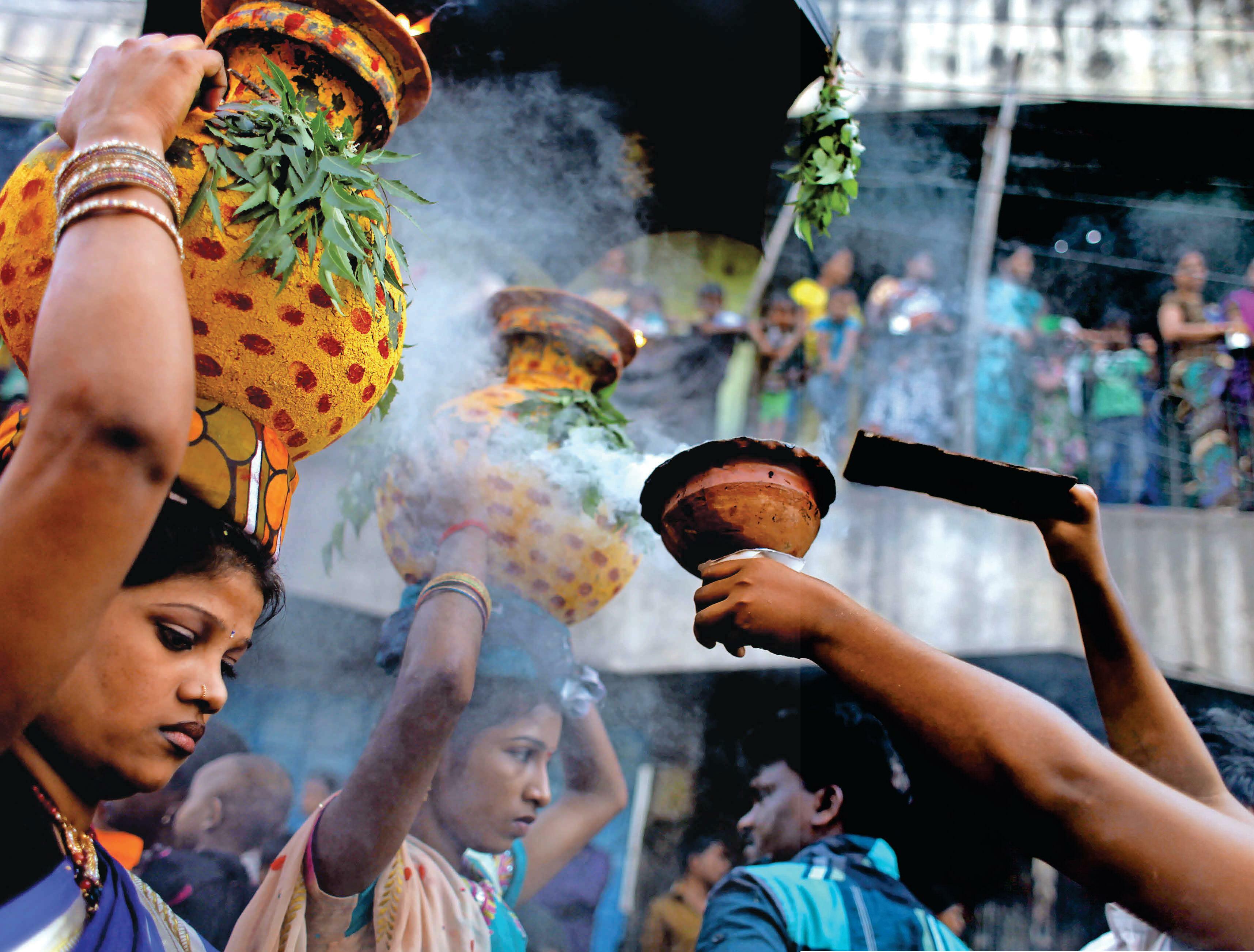Prøve GULL - Gratis
Hope in the midst of havoc
THE WEEK India
|September 08, 2024
A Telugu community in Bangladesh, with a history dating back more than 150 years, faces multiple challenges. They want the new government to lend them a patient ear

Every year, Dhaka resident Trinath Baurusetty retraces the steps his forefathers took nearly two centuries ago. The 27-yearold embarks on a journey to India from the Bangladesh capital. After crossing the international border into West Bengal, he takes a train from Kolkata to Visakhapatnam. His destination is Etikoppaka village, renowned globally for its traditional toys. The village holds a geographical indication (GI) tag for its handicrafts. For Baurusetty, the place connects him to his Telugu roots.
“From a very young age, I was curious about my identity. I asked myself many questions about who I was. This quest has led me to make regular trips to Andhra Pradesh,” said Baurusetty in fluent Telugu. According to the information he gathered, his great-grandparents or the generation before them had migrated from Etikoppaka to Dhaka during British rule. People from many dalit families on the Andhra coast were taken for manual labour in the 1850s and later employed in tea plantations or as cleaners and scavengers in the railways and the Dhaka municipality. Today, Baurusetty is part of the 30,000-odd Telugus in Bangladesh.
K. Suryanarayana, professor emeritus at Andhra University in Visakhapatnam, said the trend was the result of cheap labour exploited by the East India Company. “The tea, teak and coffee plantations required labour, and the East India Company used workers from the area stretching from Rajahmundry to Ichapuram. They migrated to countries like Myanmar, which were considered Suvarnabhumi. In fact, in the 18th and 19th centuries, those who migrated to work in those countries earned a lot and were treated as rich foreigners by the locals. But some of them had to return without making much money and had to be rehabilitated by the governments.”

Denne historien er fra September 08, 2024-utgaven av THE WEEK India.
Abonner på Magzter GOLD for å få tilgang til tusenvis av kuraterte premiumhistorier og over 9000 magasiner og aviser.
Allerede abonnent? Logg på
FLERE HISTORIER FRA THE WEEK India

THE WEEK India
WHERE THE STORM NEVER REALLY PASSES
Guantánamo Bay, once a symbol of the ‘war on terror’, has emerged as a flashpoint in Donald Trump’s immigration battles, exposing deep tensions between America’s security, legality and moral commitments
10 mins
December 21, 2025

THE WEEK India
Moderation is the key
Most people do not believe me, but I am a moderate man.
3 mins
December 21, 2025

THE WEEK India
OCEAN THERAPY
The Modi-Putin summit unveils a cooperation strategy that will rewire sea trade routes and expand India's maritime connect to the Arctic
3 mins
December 21, 2025

THE WEEK India
Indian Army men fighting for the British against the Japanese were also patriots
Readers in India may be misled by the title of Gautam Hazarika's new book, The Forgotten Indian Prisoners of World War II: Surrender, Loyalty, Betrayal and Hell. It is not about the INA prisoners who were put on trial in the Red Fort by the British. This book is about those Indian soldiers who fought the Japanese in Singapore, Malaya and Burma alongside the British, and who had to surrender, were taken prisoner, put to torture and hard labour by the Japanese, refused to join the INA, and faced death or managed to escape. While recounting their stories, Hazarika also gives an insight into the INA movement. Edited excerpts from an interview with the author:
4 mins
December 21, 2025

THE WEEK India
CHAT WITH NEHRU, QUERY KALAM...
The Prime Ministers' Museum & Library showcases the life and contributions of prime ministers and nation-builders
3 mins
December 21, 2025

THE WEEK India
The art of shifting gears in investing
“Hope is not a strategy,” Hayes growls in one memorable scene, dismissing a teammate’s starry-eyed optimism.
3 mins
December 21, 2025

THE WEEK India
Trouble on the tarmac
It is not IndiGo but Indian aviation that has become too big to fail
4 mins
December 21, 2025

THE WEEK India
SHUX AND BLUE MARBLE
THE 18 DAYS IN SPACE MIGHT HAVE MADE HIM A HOUSEHOLD NAME, BUT GROUP CAPTAIN SHUBHANSHU SHUKLA IS AS GROUNDED AS EVER. AND BEFORE HE SUITS UP FOR HIS NEXT MISSION, THE WEEK'S MAN OF THE YEAR SHARES STORIES FROM HIS LIFE AND SPACE, INCLUDING HOW HE BECAME A 'WATER BENDER'
9 mins
December 21, 2025

THE WEEK India
The parietal lobe
If the frontal lobe is where we decide what to do, the parietal lobe is where we understand where we are. It is the brain's internal GPS, the quiet navigator that lets you put your hand exactly where your teacup is, find the edge of a staircase without staring at it, or scratch the correct side of your head when it itches. When it works well, we move through life gracefully. When it falters, life becomes slapstick comedy.
2 mins
December 21, 2025

THE WEEK India
Area of the globe? Pie is cubed
Floating in his private pool, China's helmsman Mao Zedong shared his strategic vision with visiting Soviet strongman Nikita Khrushchev in 1958: \"You look after Europe, and leave Asia to us.\" Obviously, he expected the US to withdraw into its prewar Monroe world of the Americas, thus making the world tripolar.
2 mins
December 21, 2025
Listen
Translate
Change font size
